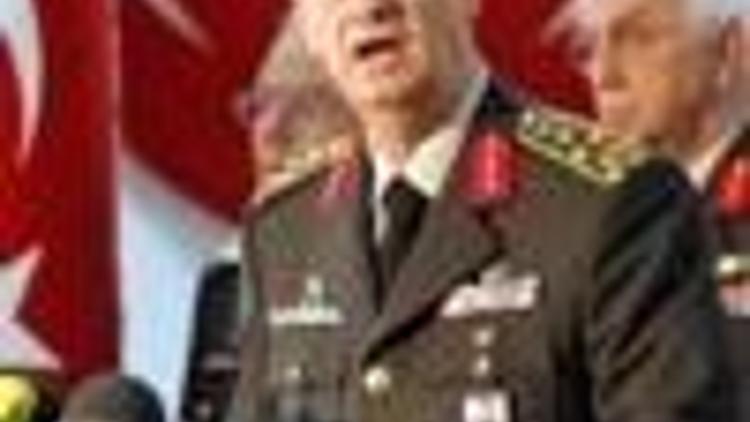No cease-fire in Israel, Turkey ties after Davos
Güncelleme Tarihi:

ANKARA - Controversial remarks made by a top Israeli general spark more friction between Turkey and Israel. The incident, in which the general told Erdoğan to look in the mirror, is the first fallout from Davos
Turkish-Israeli relations have suffered another setback. The latest altercation erupted from controversial remarks made by a senior Israeli general in the wake of a verbal duel between the prime minister and the Israeli president in Davos. �
The development comes after retired diplomats were mocked by Prime Minister Recep Tayyip Erdoğan, who called them "mon cher" for warning him that his actions would upset bilateral ties with Israel.
"Mr. Prime Minister has made a very serious mistake. Turkey is paying the price for the government's pro-Hamas approach. Tomorrow the cost could be more serious. In foreign policy, one needs to think three times and speak once," main opposition Republican People's Party, or CHP, deputy Onur Öymen, a former diplomat, told the Hürriyet Daily News & Economic Review yesterday.
On Friday, Maj. Gen. Avi Mizrahi, commander of the Israeli army headquarters, was quoted as saying that Prime Minister Erdoğan, who severely criticized Israel's military campaign in Gaza, "should first look in the mirror," referring to the 1915 incidents and the Kurdish conflict in Turkey. The Israeli general's remarks reportedly came during an international conference in Israel and drew strong ire from Turkey.
Turkey summoned the Israeli ambassador to the Foreign Ministry over the weekend and handed a note of protest demanding clarification, while the military denounced them as "excessive, unfortunate and unacceptable."
"We expect the Israeli General Staff, which we believe places importance on relations with the Turkish Armed Forces, to clarify the issue," read a written statement posted on the General Staff Web site, warning such comments could harm national interests in bilateral relations.
In Jerusalem, the Israeli army later issued a statement that said the general's remarks were not representative of its views. "There is weak possibility in an Israeli army commander making remarks without the knowledge of the government. If the comments were deemed a faux pas on the part of the Israeli general, Israel would have offered an apology but there has been no apology so far. The Israeli army's reaction was confined to a statement disassociating itself from the remarks," said Öymen.
President Abdullah Gül declined to comment on the general's remarks. "Mutual statements were already made," he told reporters at Ankara's Esenboğa airport after his return from Russia yesterday.
Israel's military campaign in Gaza has strained relations between the two regional allies. After a month of escalating rhetoric against Tel-Aviv, Erdoğan stormed out of a heated panel debate on the Gaza offensive at the World Economic Forum in Davos last month after a public confrontation with Israeli President Shimon Peres. Mizrahi's remarks reportedly came in comments on Erdoğan's tirade in Davos where he accused the Israeli president of knowing well how to kill people.
Fallout from Davos
Turkey's former ambassador to the United States, Faruk Loğoğlu, told the Daily News that the latest incident should be considered an "aftershock" of Davos. He said the remarks by the Israeli general, who holds a responsible position, would have an impact that cast a shadow in Turkish-Israeli relations but noted it would not be correct to claim they entirely reflected the views of Israel.
"It was clear from the very beginning that Davos would have consequences and today we see Turkey being excluded from the ongoing process of cease-fire between Hamas and Israel and negative signals are coming from the Israeli lobby in the United States," said veteran Turkish diplomat, İnal Batu. "Turkey may have won sympathy in Gaza or on some Arab streets but this is not enough," he said.
Books on diplomacy
After his incident in Davos, Erdoğan targeted retired diplomats at home critical of his actions during the panel debate and labeled them "mon cher," saying he did not speak the same language as the retired diplomats.
"You cannot handle foreign policy by talking big or as if you are running a coffee house. One who starts up in anger sits down with a loss. The government would do a better job if it listened to what we say instead of listening to our tapped telephone conversations," said Öymen.
He said he recently presented Erdoğan with two books, "Silahsız Savaş" (Unarmed War) and "Ulusal Çıkarlar" (National Interests) to help fill the gap in the prime minister's knowledge on diplomacy and diplomats. "But it seems he hasn't read the books yet," he said.
Batu said the language used in diplomacy was very important and said underestimating the country's diplomats by calling them mon cher was not the treatment they deserved.
"The Foreign Ministry is one of the most eminent institutions of the country. While it was under the monopoly of pashas, minorities and those who can speak French in the late Ottoman times, the sons of this nation have begun working in the ministry since the proclamation of the Republic, the majority of who come from middle-income families like me," he said.
Batu said he believed relations with Israel would be repaired in time as long as Erdoğan stopped using the rhetoric he used for domestic politics in the international arena. A major crisis in bilateral ties is unlikely, said Loğoğlu.
In a related development, as Turkey’s Jewish community voiced concern over the growing anti-Israeli rhetoric, a prominent Turkish businessman who is also a Jew said he has never felt discriminated in Turkey. "I never felt I was ostracized for being Jewish," Ishak Alaton told the New York Times in an interview published Saturday.

